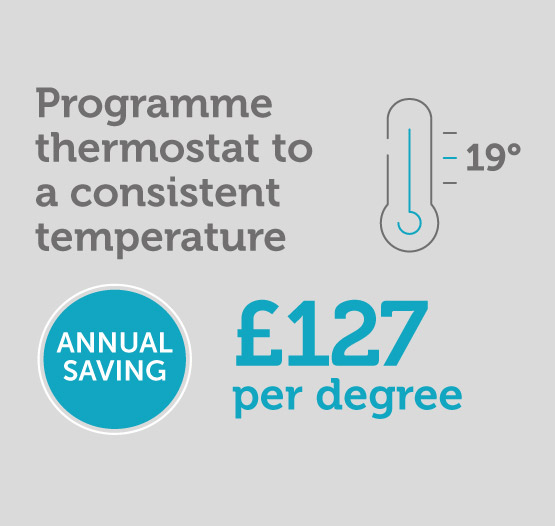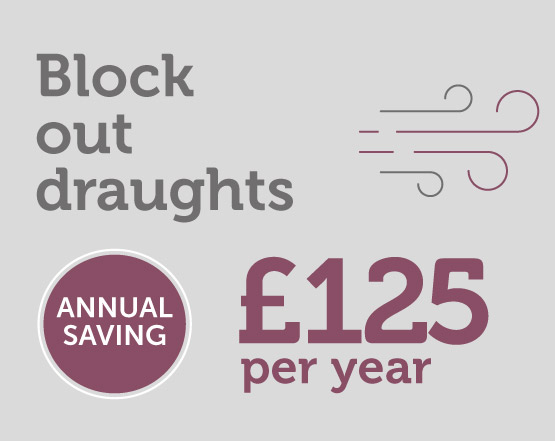‘Don’t be fooled by the freeze’ - Elmhurst accredited experts give top five fuel-saving tips for cutting household energy bills
Elmhurst’s Domestic Energy Assessors (DEAs) have given their top five tips for saving fuel this winter, urging billpayers ‘not to be fooled’ into cranking up heating and hot water temperatures after the price cap freeze.
More than 270 domestic energy assessors, who give qualified advice on lowering energy use to homeowners nationwide, were asked how billpayers could make the biggest dent in their energy bills, set to average £2,500 per year – more than double the cost in October 2021.
Out of more than 800 recommendations, installing loft insulation, programming the thermostat correctly and limiting hot water wastage came out on top, closely followed by making the switch from traditional to LED lightbulbs and getting rid of draughts. These five changes alone could save billpayers as much as £782 each year depending on the age of the home, its energy efficiency and number of occupants.
The advice follows the recently announced price cap freeze meaning average energy bills for homes are now estimated to be at around £3,300 for detached houses, £2,650 for semi-detached, £2,350 for mid-terrace, and £1,750 for flats. This is compared with October 2021’s standard tariff price cap of £1,277 per year.
Stuart Fairlie, Managing Director of Elmhurst Energy, said:
“The new energy price cap average of £2,500 still means a bill at least double the cost of 2021. Billpayers shouldn’t be fooled by the freeze into wasting energy, as they will still pay for the energy they use, meaning their bill could be significantly higher, especially if they live in a bigger, older home or have a larger family.
“There are a mix of hugely effective measures to take. Loft insulation will make one of the biggest, immediate cuts to bills, but involves a higher up-front cost, especially if it means getting in someone to do the job. But proper insulation will more than make its money back in less than two years and will keep saving money from that point.
“Many of the most effective measures are also free. One of the best energy-saving tips is simply to get to grips with your thermostat and programme it correctly, using a consistent temperature – one for day, one for night. Dropping by just one degree can slash 10 per cent off a bill. And by using hot water sparingly, this can also dramatically cut energy usage as it reduces dependence on the boiler to fire up as much.”
To lessen the blow of household energy bills, Elmhurst Energy’s members – qualified DEAs – recommended measures for reducing energy consumption. DEAs are the qualified professionals who assess homes’ energy consumption and give an energy performance certificate (EPC) rating, ranging from A to G.
Their top tips, which could vary depending on the type of home, its age and the number of occupants, were:

1. Install loft insulation¹
An uninsulated roof leaks 25% of home heat. Loft insulation costs vary by material, starting from £5/m2 for blanket insulation at the 270mm required depth – or £150 to £285 for an average mid-terrace. It can also be DIY installed, with protective clothing, while average labour will cost £250/day to do the work.
SAVING: Up to £330 a year¹
2. Use a programmable thermostat – at a consistent temperature
Most combi boilers have programmable thermostats to set temperatures automatically. DEAs recommend setting to 15-16 degrees at night and 18-20 degrees during the day, depending on activity levels. Wireless programmers are ideal and can be located in the hall or the most used room, but radiators must be set in sync with the thermostat.
SAVING: £127 minimum per year per degree²
3. Don’t waste hot water
Free and simple to implement, DEAs recommended turning down the thermostat on the cistern to around 60 degrees, as well as making a raft of switches from bath to shower, boiling kettles using only the water needed and waiting to use dishwashers and washing machines until full.
SAVING: Around £100 per year³
4. Make the LED switch
Lighting a home can amount to 11% of the average bill. LED lightbulbs last up to 25 times longer than traditional incandescent bulbs – depending on quality and use, so every 75-watt incandescent bulb replaced with an LED can save around £10 a year, based on 503.5 hours’ average per year – the amount for a typical kitchen or lounge.
SAVING: Around £100 per 10 bulbs switched to LED⁴
5. Block out draughts
Draughtproofing is as simple as closing internal doors, especially when opening outside doors. For doors, use draught excluders, cover keyholes, use letterbox flaps or brushes and fit brush, foam or wiper strips around to fill gaps. Use strips for windows, a chimney draught excluder for unused fireplaces, consider a flexible filler for floorboards and check loft hatches are fully draughtproof.
SAVING: £125 per year⁵Homeowners looking to find out how to make their home more energy efficiency before winter can also use Elmhurst’s free-to-use tool for finding qualified energy professionals in their area, at https://www.elmhurstenergy.co.uk/find-an-assessor/.
For more homeowner information, visit https://www.elmhurstenergy.co.uk/information-for-homeowners/.
References:
1Based on a mid-terraced, gas heated home going from an uninsulated, to insulated loft with 270mm loft insulation (https://energysavingtrust.org.uk/advice/roof-and-loft-insulation/)
2 Based on a report from uswitch in autumn 2021 (https://www.thisismoney.co.uk/money/bills/article-10254069/Why-set-thermostat-19-degrees-save-money.html)
3 Based on a combination of taking shorter showers/switching shower heads (https://energysavingtrust.org.uk/advice/saving-water-at-home/) or using eco-washing machines/dishwashers (https://www.which.co.uk/reviews/cutting-your-energy-bills/article/how-to-save-on-your-energy-bill/10-ways-to-save-on-energy-bills-aX2RS8b8llMR)
4 From Energy Saving Trust (https://energysavingtrust.org.uk/advice/lighting/)
5 From Energy Saving Trust (https://energysavingtrust.org.uk/hub/quick-tips-to-save-energy/)
